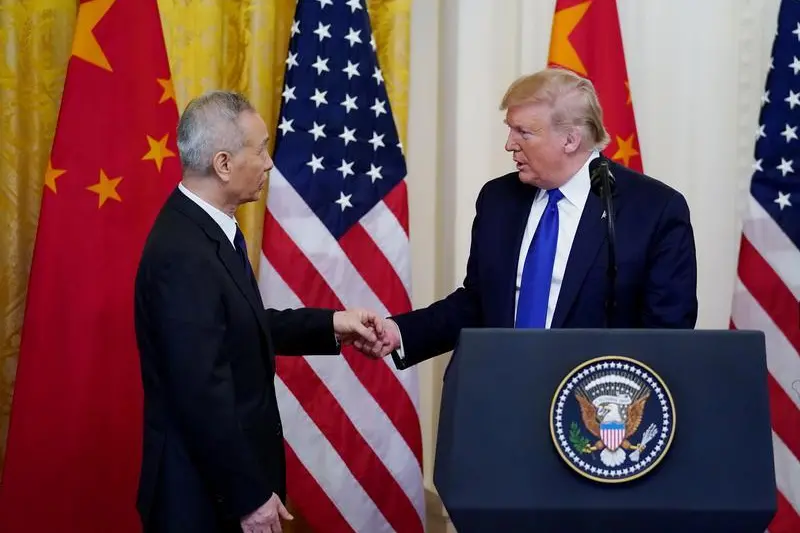PHOTO
HONG KONG - China’s reform camp is toasting Wall Street’s trade war win. Beijing has further committed to open its financial sector as part of the so-called phase one of a U.S.-China trade deal signed on Wednesday. The promise to import an additional $38 billion in U.S. services by 2021 follows other liberalisations in the sector, and will mean Chinese institutions could soon face serious American competition. That could benefit both sides.
Scepticism abounds. China has dragged its feet to meet commitments made when it joined the World Trade Organisation in 2001, in particular on promises to let companies like Visa and Morgan Stanley compete on level playing fields with domestic rivals. As it procrastinated, the People’s Republic built up state-backed giants including the Industrial and Commercial Bank of China, the world’s largest bank with $4 trillion in assets, and UnionPay, which has a near-monopoly in payment systems and credit cards at home and competes with Mastercard and Visa abroad.
It may look like China is luring Wall Street firms into a market it thinks they cannot dent. Not necessarily. While mainland banks and brokerages have become notable for their size, they are also parochial and inexperienced. Few have ventured far into overseas markets, and they largely sat out China’s last overseas acquisition spree. The exception that proved the rule was Citic Securities’ troubled $1.3 billion acquisition of brokerage CLSA in 2013.
Many Chinese banks excel at conservative lending that keeps inefficient industrial dinosaurs afloat – a de-facto subsidy that fuelled trade-distorting overcapacity. Others focused on funding speculators who inflated asset bubbles from real estate to egg futures. As regulators work to reduce systemic risk and guide capital to more productive private companies, neither skill is in high demand any more. American institutions, freed to create online banks, control joint ventures, rate debt and equity and so on in China, may be more competitive than they think.
Economic liberals like chief trade negotiator Liu He and top banking official Guo Shuqing have long wanted to use foreign competition as sticks to beat the financial system into an efficient, less risky, model. Now, at long last, they may get it. Whatever happens with the rest of the trade deal, that’s something to celebrate.
CONTEXT NEWS
- The United States and China signed an initial trade deal on Jan. 15 that will roll back some tariffs and boost Chinese purchases of U.S. products and services by $200 billion over two years.
- According to the announcement published by the White House, Beijing has agreed to lift foreign equity caps for securities companies, insurers, and fund managers by April 1, 2020. Other concessions include easing the licensing process for U.S. credit and debit card companies, allowing credit ratings agencies to take control of joint ventures, and allowing American distressed debt investors to obtain provincial-level licenses.
(Editing by Robyn Mak and Katrina Hamlin) ((pete.sweeney@thomsonreuters.com; Reuters Messaging: pete.sweeney.thomsonreuters.com@reuters.net))





















